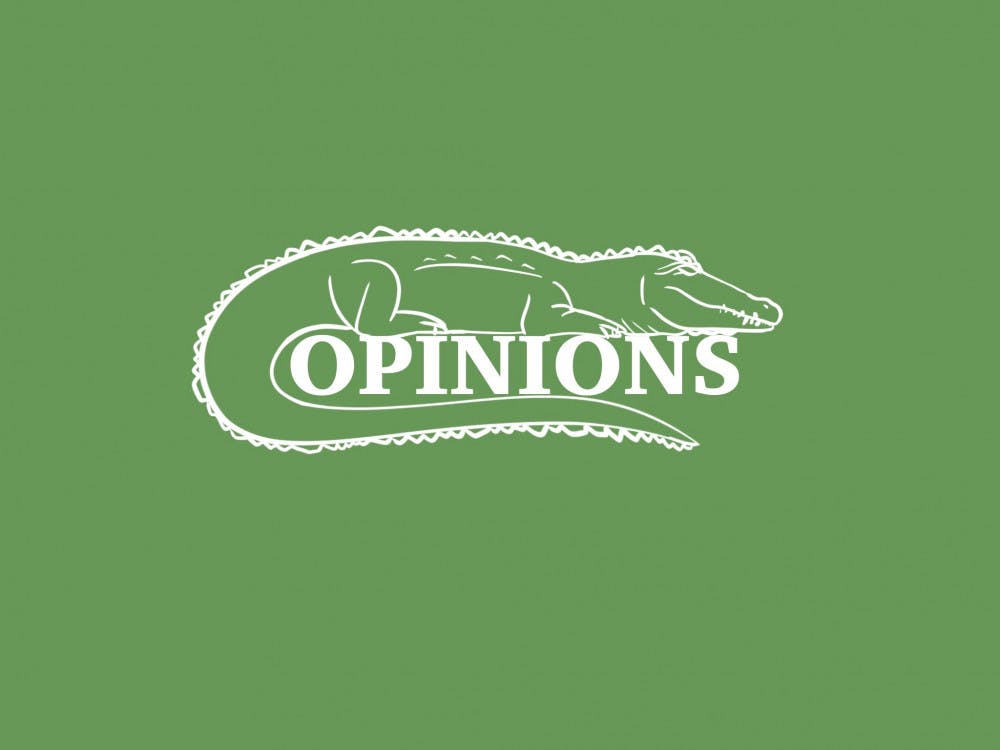In the past few years, Gov. Ron DeSantis has sought to limit the influence of “liberal” perspectives in public education.
This is clear with initiatives including a bill that allows students to record instructors for the explicit purpose of complaining about their lack of “ideological diversity” and the “Don’t Say Gay” law, which prohibits elementary school teachers from discussing sexual orientation and gender identity.
Most famously, DeSantis championed House Bill 7, also known as the “Stop W.O.K.E.” Act, according to which universities may not “subject any student or employee” to concepts based on race, color, national origin, or sex. HB 7 took effect July 1, but was blocked in November by a federal judge.
However, recently the presidents of all 28 state and community colleges in Florida embraced the goals of HB7 by signing a statement promising to eliminate any requirement or program “that compels belief in critical race theory or related concepts such as intersectionality.”
In late December DeSantis’s office requested information from all state universities “regarding the expenditure of state resources on programs and initiatives related to diversity, equity and inclusion, and critical race theory within our state colleges and universities.”
Colleges and universities were required to provide descriptions of their diversity-related programs; positions related to the program; total funding; and percentage of the funding that comes from the state. The Chronicle of Higher Education recently published the responses, which it received through an open-records request.
For most of the 12 schools that responded, diversity spending was far less than 1% of their budgets; two reported spending around 1%. Obviously, the amount spent on diversity programs is minimal, but even a fraction of 1% may be too much for programs that are antithetical to DeSantis’s vision of higher education in Florida.
This vision claims to promote “ideological diversity” and “objectivity” by reducing the influence of “liberal” ideas. It assumes that the perspectives of those who support and benefit from the status quo are under-represented in academia. It also assumes that students are harmed by learning about past injustices and reflecting on the ways their own privileges might be related to past harms.
There is so much wrong with this that it’s hard to know where to begin. First, DeSantis is not promoting ideological diversity.
He is promoting specific ideologies, as made evident in the establishment of a conservative think tank at UF and the transformation of New College of Florida into a conservative school along the lines of Hillsdale College, a deeply conservative private Christian institution in Michigan.
Second, DeSantis falsely suggests that institutionalized racism and sexism are historical relics about which contemporary people need not concern themselves. Most Floridians, however, cannot help but know that these forms of discrimination are powerful forces that affect every aspect of our daily lives as students, teachers, and citizens.
Third, the perspectives DeSantis wants to ban are not nearly as omnipresent as he claims. Most students get through college with little if any exposure to “woke” ideas.
When I ask students what they know about critical race theory, for example, the vast majority know nothing. If they’ve heard of it, it’s in the context of HB 7 and related initiatives.
Fourth, DeSantis’s programs damage both academic freedom and the purpose of higher education. In the humanities, for example, we strive to give students not just content knowledge but also, and more importantly, critical thinking skills that can help them be better citizens as well as workers. I teach students about the kinds of questions ethicists ask, the concepts and theories they use, and the goals of moral reflection.
We then apply these skills to contemporary issues, including many that DeSantis does not want us to address. In looking at health disparities, for example, we consider whether health care is a universal human right, as many philosophical and religious frameworks insist.
If it’s a human right, then we have to ask about the responsibilities that wealthier nations and individuals have toward those with fewer resources. We cannot even ask these questions, let alone answer them, without thinking about institutionalized racism, structural injustice, colonialism, and other categories that DeSantis wants to ban.
Universities should give students tools to understand our complex, contradictory society. This means learning about those who are radically different from us, confronting unpleasant realities, and questioning things we took for granted.
Such confrontation and questioning are precisely what DeSantis wants to eliminate.
He’s using public education to serve a divisive political agenda first, by banning challenges to the privilege of affluent, conservative white men; second, by denying members of vulnerable groups tools for understanding their situations; and third, by preventing of us from learning about the ways our own lives are inextricably, beautifully, and painfully entangled with others.
Anna Peterson is a UF professor of religion.






